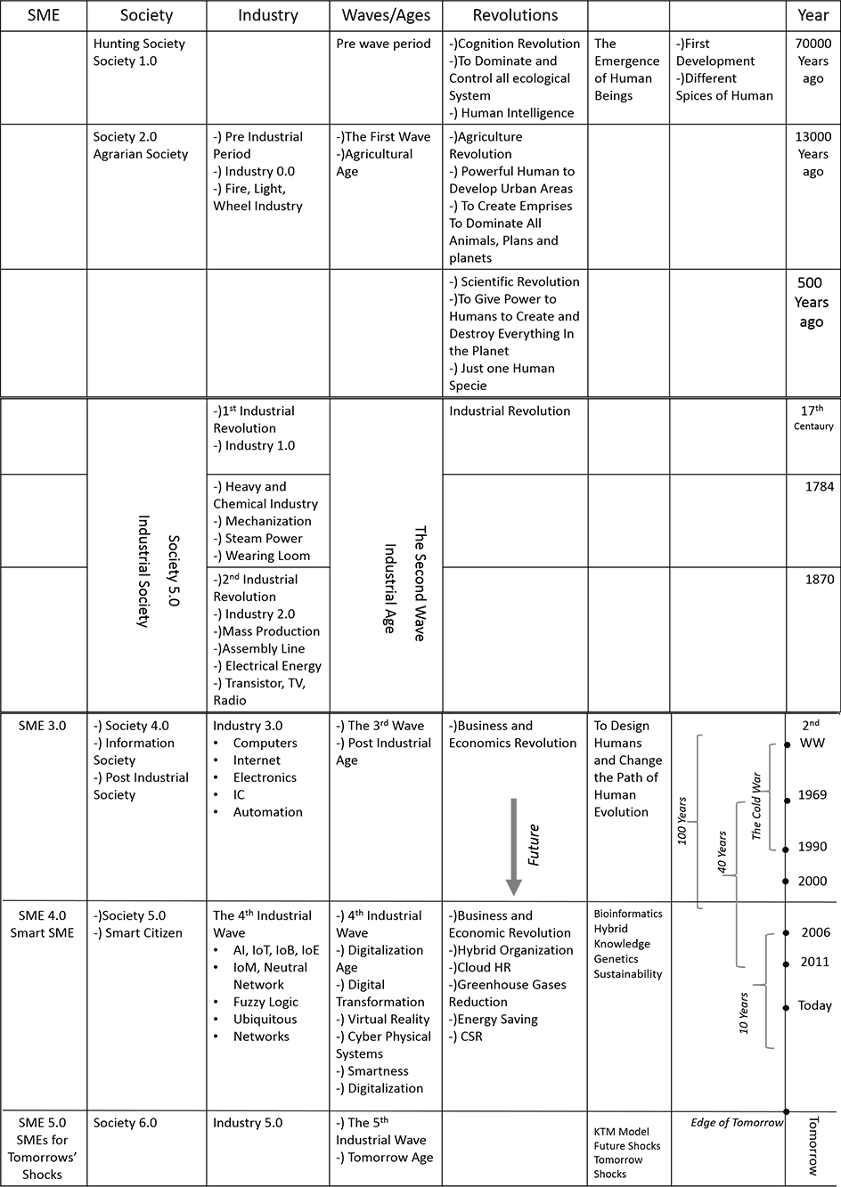Nowadays, we had passed the 1st, 2nd, 3rd and 4th waves (ages). Before 1970 various businesses could affect and improve educational technologies, economy, and IT. Since we reached the 70ies the educational technologies and IoT became able to change and improve the various energies, businesses, and even impact our lives. Besides this, they can change the global policy from traditional methods to sustainable modern productive methods. IoT based educational economy (business) make this learning business procedure faster, safer with higher productivity even possible. Artificial Intelligence (AI), Machine Learning, Computer Vision, Neural Network, Fuzzy Logic, and other new technologies as well as knowledge in combination of reality and virtual reality build a new concept named Education 5.0 changes the paradigm from traditional to modern with huge effectiveness in different aspects of life including various businesses, urban planning, governance and etc to get prepared for the future concern.
These technologies would create smart education; however, barriers cause challenges to apply these technologies and create modern areas like e-learning and MOOCs. It is required to indicate these barriers and find out solutions to apply them and change humans’ life to maintain the world. Based on the 5th wave theory and related theories, models and concepts, today’s challenges and tomorrow’s crises have been discussed that in our world of that technology development and rapid growing made ever-quickening change, the human mind is threatened by shattering. Proper solutions and policies could make people to deal with new challenges for the future education. Prof. Doost as ttheoretician of the 5th wave theory believes that sustainability has more pillars than the three from UN. He contends that seven pillars are required to develop sustainability: environment, economic, social, educational, cultural, technical, and political aspects form educational sustainability.
These aspects make a puzzle in which all the segments are directly or indirectly related to each other. Figure 1 presents seven aspects of sustainability (7PS model) and its classification. This model is focusing on seven pillars of sustainability as below:

Figure 1. Seven pillars of sustainability model (7PS model) (Doost, H. 2010-17)
Fundamentally, we are settling in edge of future that confronts future shocks including tomorrow’s family life challenges, new businesses’ barriers, modern lifestyles risks, and human relationships challenges and so on. the below figure presents the point that we are perched on:

Figure 2. The 5th wave Theory, Ages and Technologies (Doost, H. 2010-17)
As in previous section was declared, solutions are required to deal with ubiquitous and digitalization challenges to be able to apply them in different educational businesses and services towards creating modern areas. The 5th wave/tomorrow age theory or theory of comprehensive everything could be a comprehensive strategy to find out solutions to deal with such challenges, even to tackle future shocks for mapping the future education.
These days, the world confronts global challenges as well as future shocks, which threaten human beings and the future of the world for living. So, it is vital to deal with them to maintain the nature and humanity. Figure 2 the 5th wave/tomorrow age theory, illustrates the ages, revolutions, societies, industries, and SMEs (from SME 3.0 to SME 5.0) that we had passed and the point that we are on which has been invented, introduced, and developed by Prof. Dr. Hamid Doost Mohammadian (2010-17).
The 5th wave theory is about proceeding of future of I4.0 which called Industry 5.0 as a symbol of western culture by Germany and future of Society 5.0 which called Society 6.0 as symbol of non-west culture evaluated by Japan Government and edge of tomorrow which is mentioned from 2020 to 2030 has invented, introduced, and developed by Prof. Doost for the first time in 2010 and improved between 2017-2019. Based on this theory, modern educational SMEs that are not only concerned on business and marketing, but also social responsibility like CSR strategies, being environmentally friendly, improving quality of livability and life. Generally, the 5th theory is a tool to achieve Blue-Green sustainability and required to deal with future challenges, even to maintain the world for future. This education 5.0 is a concept though the 5th wave theory which is a kind of sustainability with seven pillars including economic, environmental, social, cultural, technical, education and political sustainability based on being to make the word as a better place for living. The below figure presents the evaluation of 5th wave:

Figure 3: Histomap of 5th Wave/Tomorrow Age Theory (Doost, H. 2010- 17)
Authors are invited to submit complete papers for the MF Edu 5.0 & 5th wave theory special session. The topics includes the following:
| 25 Oct 2021 | Abstract submission, Proposals for Special Sessions, Panels and Workshops |
| 05 Nov 2021 | Notification of Abstracts and Special Sessions acceptance |
| 12 Dec 2021 | EXTENDED - Complete paper upload for accepted abstracts (main conference) - Submission of complete papers for Special Sessions - Submission of Work-in-Progress and Student Poster Papers - Proposals for Panels and Workshops |
| 15 Jan 2022 | Notification of Acceptance |
| 10 Feb 2022 | Author registration deadline Camera-ready submission for all submission types |
| 28 Mar 2022 | Pre-conference Workshops |
| 29 Mar 2022 | Conference Opening |
| 31 Mar 2022 | Conference Closing |